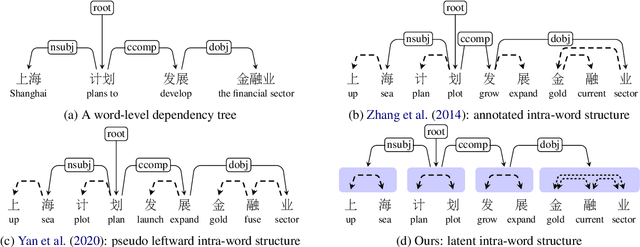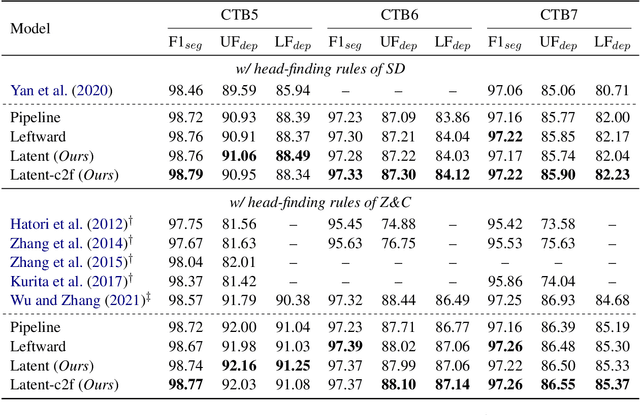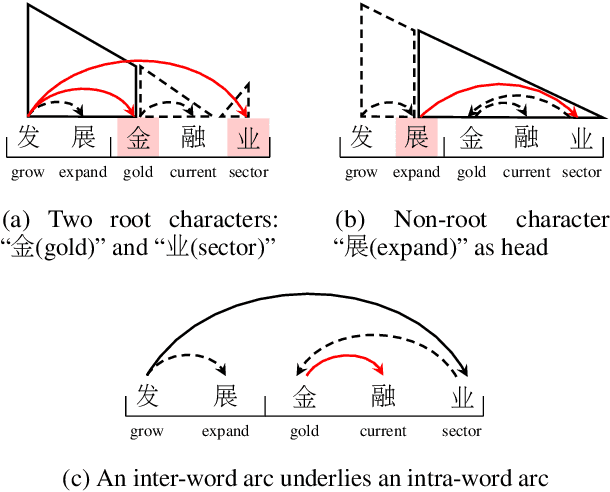Character-Level Chinese Dependency Parsing via Modeling Latent Intra-Word Structure
Paper and Code
Jun 06, 2024



Revealing the syntactic structure of sentences in Chinese poses significant challenges for word-level parsers due to the absence of clear word boundaries. To facilitate a transition from word-level to character-level Chinese dependency parsing, this paper proposes modeling latent internal structures within words. In this way, each word-level dependency tree is interpreted as a forest of character-level trees. A constrained Eisner algorithm is implemented to ensure the compatibility of character-level trees, guaranteeing a single root for intra-word structures and establishing inter-word dependencies between these roots. Experiments on Chinese treebanks demonstrate the superiority of our method over both the pipeline framework and previous joint models. A detailed analysis reveals that a coarse-to-fine parsing strategy empowers the model to predict more linguistically plausible intra-word structures.
 Add to Chrome
Add to Chrome Add to Firefox
Add to Firefox Add to Edge
Add to Edge